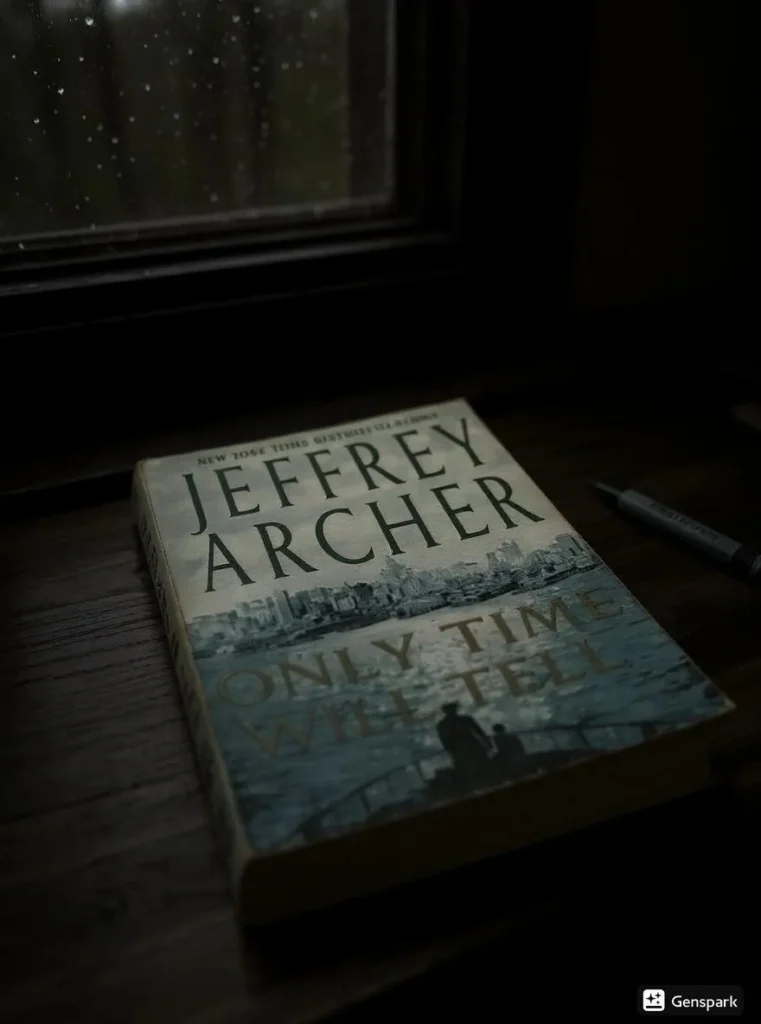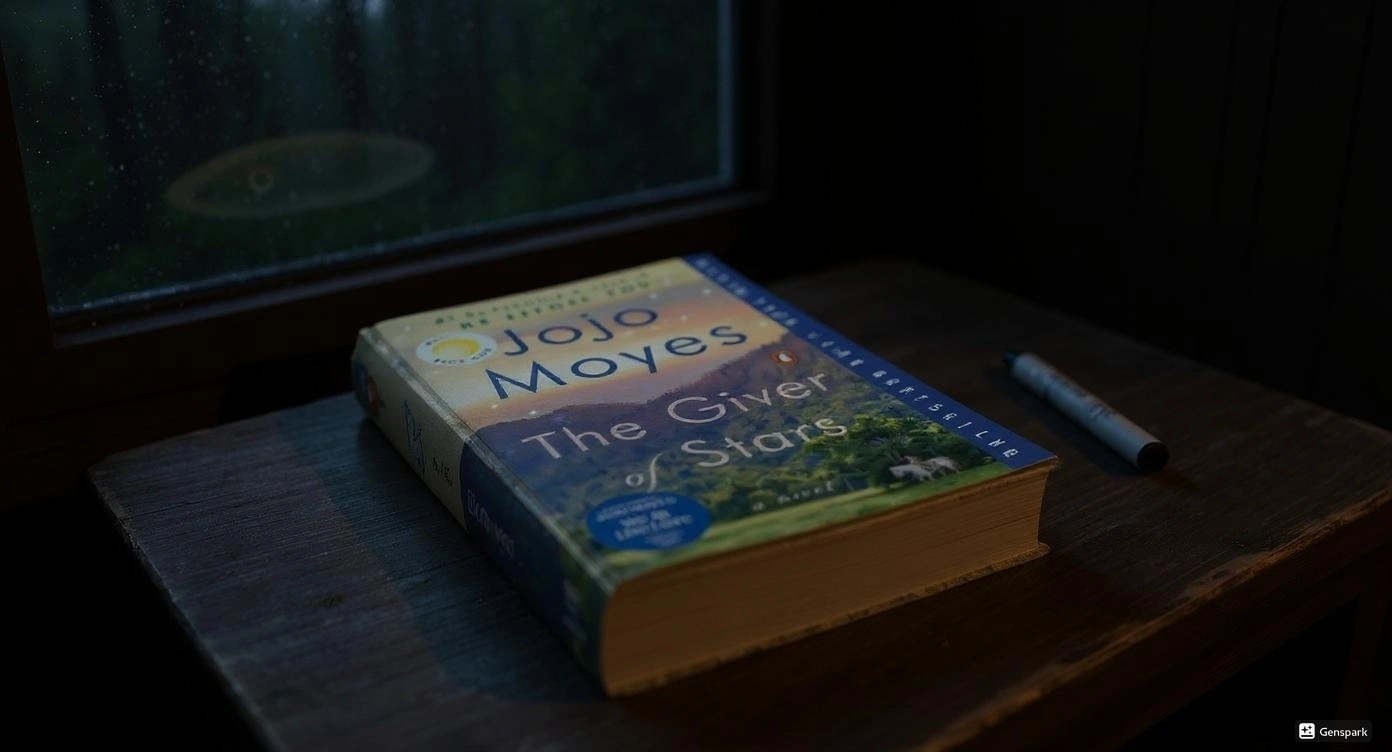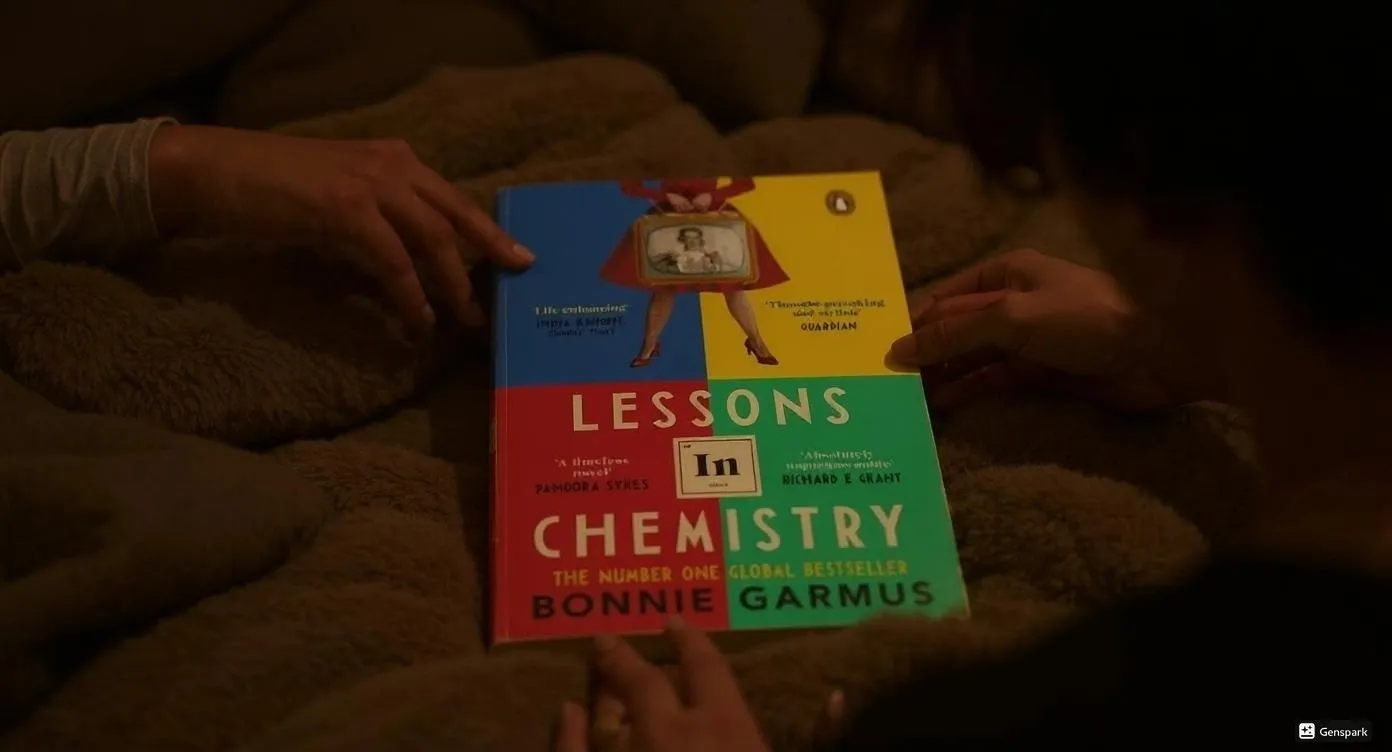I remember exactly where I was when I first opened this book – curled up in my favorite armchair on a freezing January evening, rain drumming against my window. I’d grabbed it from the library’s returns shelf, skeptical about starting another multi-book series.
Three hours later, I found myself texting my sister at midnight: “You HAVE to read this book.” My coffee had gone stone cold, my dinner forgotten, because Jeffrey Archer had just reminded me why I became addicted to reading in the first place.
I’ve devoured over 3,000 books in my twenty years as a reviewer, but few authors can grab me by the throat and refuse to let go like this. When Harry Clifton’s story began unfolding through multiple perspectives, I felt that familiar reader’s high – the one where you forget you have a real life outside these pages. This isn’t just historical fiction; it’s a masterclass in emotional manipulation that works because every tear, every gasp, every moment of fury feels completely earned.
What started as casual evening reading turned into a three-day obsession that left me questioning everything I thought I knew about family loyalty and class barriers. I’ve read this book twice now, and I’m still discovering details that make me want to shake other readers and demand they experience this story immediately. Archer doesn’t just tell Harry’s story – he makes you live it, breathe it, and carry these characters with you long after you’ve reluctantly closed the book.
Key Takeaways
Education becomes Harry’s lifeline out of poverty, but Archer shows how knowledge can be both liberation and burden. I watched Harry struggle with belonging to two worlds, never fully fitting into either, and recognized my own childhood battles with social expectations.
Family secrets create the most devastating damage when they’re kept to protect the people we love most. Maisie’s silence about Harry’s true parentage drives every major plot point, and I found myself questioning which lies in my own family might actually be acts of love.
Class distinctions in 1920s-1930s Bristol weren’t just social preferences but life-determining barriers that shaped every opportunity and relationship. Archer’s portrayal made me physically uncomfortable with its accuracy about privilege and poverty.
Multi-perspective storytelling can transform familiar stories into addictive page-turners when each viewpoint reveals information that changes everything you thought you knew. I kept gasping at revelations that completely reframed earlier scenes.
Love stories hit hardest when they’re built on genuine friendship and shared values rather than instant attraction. Harry and Emma’s relationship develops through intellectual connection, making their eventual romance feel inevitable rather than forced.
Basic Book Details
Publishing Information: May 12, 2011 by Pan Macmillan
Genre: Historical Fiction/Family Saga
Plot: Multi-generational story following Harry Clifton from 1920 Bristol through wartime challenges
Series Information: Book 1 in The Clifton Chronicles (7 books total)
Page Count: 448 pages
Main Characters:
- Harry Clifton: Working-class boy with extraordinary singing voice and mysterious parentage
- Maisie Clifton: Harry’s devoted mother hiding devastating family secrets
- Hugo Barrington: Wealthy dock owner whose past threatens Harry’s future
- Emma Barrington: Hugo’s daughter who captures Harry’s heart and challenges his world
- Giles Barrington: Emma’s brother whose friendship with Harry transcends class boundaries
My Obsessive Reading Experience
I discovered this book during a particularly rough week at work, seeking something to transport me away from deadlines and office politics. The Bristol docks of 1920 provided exactly that escape. I remember the exact moment I became hooked – page 47, when Harry first hears about his mysterious father. I actually put the book down and stared at the wall, my heart racing.
What struck me most was how Archer makes you care about every single character, including the ones you should hate. I found myself rooting for Hugo Barrington despite his obvious flaws, which made me question my own capacity for forgiveness. That’s the mark of exceptional storytelling – when fictional people continue living in your head weeks after you’ve finished reading.
The book took me three sleepless nights to finish, but I spent months recommending it to anyone who’d listen. My local bookstore owner got tired of hearing me gush about it. That’s when I knew I’d found something special.
Bristol Docklands And The Weight Of Class
Archer paints the Bristol docklands with such vivid precision that I could taste the salt air and feel the rough wooden planks under my feet. The setting isn’t just backdrop – it’s a character that shapes every person’s destiny. When Harry walks from his cramped tenement to the grand Barrington mansion, you feel the social chasm in your bones.
The rigid class system of interwar Britain becomes suffocating through Harry’s daily experiences. I grew up middle-class, but reading about Harry’s scholarship struggles made me remember every moment I’d felt out of place in privileged spaces. Jeffrey Archer’s international success with more than 275 million copies sold worldwide proves he understands how to make historical class struggles feel immediate and personal.
The contrast between Harry’s world and the Barrington family’s privilege creates natural dramatic tension. Every scene where these worlds collide crackles with unspoken class warfare that made my stomach clench.
| Social Class | Daily Reality | Future Prospects |
|---|---|---|
| Working Class (Harry) | Dock labor, shared rooms, constant hunger | Manual labor, early death |
| Middle Class (Teachers) | Modest homes, steady income | Professional advancement possible |
| Upper Class (Barringtons) | Mansions, servants, endless opportunities | Unlimited social and career options |
Character Development That Breaks Your Heart
Harry Clifton emerges as literature’s most relatable protagonist because he’s simultaneously extraordinary and completely ordinary. His beautiful singing voice opens doors, but his loyalty to friends and family makes him human. I cried actual tears during his audition scene – not because it was sad, but because his hope was so fierce it hurt to witness.
Maisie Clifton represents maternal sacrifice taken to heartbreaking extremes. Her determination to hide Harry’s true parentage drives the plot’s emotional weight, and I found her sections the most devastating. Readers consistently praise the realistic characters and multiple perspectives that keep the plot fresh, and Maisie exemplifies this perfectly.
The multi-perspective structure prevents predictable storytelling. Just when you think you understand Hugo Barrington’s motivations, Archer switches viewpoints and reveals information that changes everything. I remember literally gasping when I realized the truth about Harry’s father.
Character Psychological Analysis:
| Character | Surface Motivation | Hidden Truth | Emotional Impact |
|---|---|---|---|
| Harry Clifton | Escape poverty through education | Discover his true identity | Inspiring but heartbreaking |
| Maisie Clifton | Protect her son from scandal | Love a man she can never have | Devastating maternal sacrifice |
| Hugo Barrington | Maintain social standing | Atone for past mistakes | Complex moral redemption |
Archer’s Narrative Mastery And Plot Manipulation
Archer’s prose reads like brilliant conversation – clear, engaging, never pretentious. He avoids the flowery language that often destroys historical fiction, focusing instead on story momentum and character development. Critics call it “an excellent beginning to a wonderful adventure” with “epic storytelling”, and I completely agree.
The timeline manipulation works because each perspective adds genuinely new information rather than rehashing the same events. When I read Hugo’s section after Harry’s chapters, I understood motivations and conflicts that seemed simple before. This technique makes re-reading rewarding because you catch details that take on new significance.
The cliffhanger ending frustrated me so much I immediately ordered the next book. That’s exactly what Archer intended, and I respect the manipulation because it’s earned through genuine investment in the characters’ fates.

Themes That Hit Like Physical Blows
Education serves as Harry’s great equalizer, but Archer doesn’t present it as a simple solution. Harry’s scholarship creates as many complications as opportunities, forcing him to straddle two worlds without belonging to either. I recognized this struggle from my own educational journey, making Harry’s victories and defeats feel personal.
Family loyalty versus personal truth becomes the central tension driving every major plot point. Characters must choose between protecting loved ones and living authentic lives, with devastating consequences either way. These aren’t abstract moral dilemmas but gut-wrenching personal decisions that kept me awake thinking about my own family’s unspoken truths.
The approaching World War II creates ominous backdrop that adds urgency to every character decision. This first book in The Clifton Chronicles covers 100 years of family saga, and Archer uses historical context to heighten personal stakes without letting history overwhelm the intimate story.
Series Foundation And Strategic Emotional Manipulation
The Clifton Chronicles consists of seven books total, and this opening volume establishes the foundation masterfully. Archer plants seeds for future volumes while telling a complete story that satisfies on its own terms. I appreciated how he resolved Harry’s coming-of-age arc while introducing new complications for his adult life.
The multi-generational structure promises decades of character development, and I’m already invested in seeing how Harry’s children and grandchildren navigate their inherited challenges. That’s sophisticated series planning that respects readers’ intelligence.
Reading Experience Timeline:
| Reading Session | Emotional State | Key Revelations |
|---|---|---|
| Evening 1 (Pages 1-150) | Curious but skeptical | Harry’s musical talent emerges |
| Evening 2 (Pages 151-300) | Completely hooked | Family secrets begin unraveling |
| Evening 3 (Pages 301-448) | Emotionally devastated | Truth about Harry’s parentage |
Brutal Honesty About Strengths And Weaknesses
What Works Brilliantly: The character development feels authentic because Archer earns every emotional moment through careful building rather than melodramatic manipulation. Multiple perspectives keep the plot fresh and realistic, creating genuine emotional investment that made me care about these people like family members.
The historical setting enhances rather than overwhelms the personal story. Too many historical novels feel like museum exhibits with romance subplots, but Archer integrates period details seamlessly into character development.
What Frustrates Me: Some plot conveniences strain credibility, particularly around Harry’s musical abilities opening doors that would normally remain closed to working-class boys. The scholarship subplot feels slightly too convenient, though I understand the narrative necessity.
The cliffhanger ending borders on manipulative emotional torture. Archer resolves the main story satisfactorily but introduces a new crisis that feels calculated to sell the next book. It worked on me, but I resented being played so skillfully.
Target Audience And Content Warnings
This book works perfectly for readers who enjoy character-driven historical fiction without getting bogged down in excessive period detail. Jeffrey Archer is published in 114 countries with more than 750,000 five-star reviews, proving his global appeal crosses cultural boundaries.
Fans of Ken Follett’s family sagas will find similar satisfaction here, though Archer’s prose style feels more accessible and less dense. Readers who found Follett overwhelming might prefer Archer’s cleaner narrative approach.
Content Considerations:
- Discussion of class discrimination and social inequality
- Wartime context with military themes
- Family secrets involving adultery and deception
- Emotional manipulation and psychological complexity
Final Verdict
Only Time Will Tell succeeds brilliantly as both standalone entertainment and series foundation. Archer demonstrates why he’s one of the world’s bestselling authors – he understands that great storytelling starts with characters you care about facing impossible choices in historically accurate settings.
The book’s greatest strength lies in its emotional authenticity. Despite some plot conveniences, the characters’ feelings and relationships ring completely true. I found myself invested in Harry’s future not because of dramatic plot twists but because Archer made me care about him as a real person facing real struggles.
This isn’t perfect literature, but it’s masterful commercial fiction that respects readers’ intelligence. For anyone seeking engaging historical fiction with strong character development, compelling family dynamics, and enough emotional depth to sustain a seven-book series, Only Time Will Tell delivers completely.
Dionysus Reviews Rating: 7/10
Sip The Unknown—Discover Stories You Never Knew You’d Love!
Dionysus Reviews Has A Book For Every Mood
Biography & Memoir
Fiction
Mystery & Detective
Nonfiction
Philosophy
Psychology
Romance
Science Fiction & Fantasy
Teens & Young Adult
Thriller & Suspense
Frequently Asked Questions
Does Harry Clifton’s singing voice feel like a realistic catalyst for his social mobility?
Harry’s vocal talent works as a plot device because Archer grounds it in genuine character development rather than magical wish fulfillment. His voice opens doors, but his intelligence, work ethic, and loyalty determine whether he walks through them. The singing feels authentic because it’s based on real opportunities that existed for working-class boys with exceptional abilities in 1930s England.
How does Maisie Clifton’s secret about Harry’s parentage affect the entire family dynamic?
Maisie’s silence creates a web of consequences that touches every major character relationship. Her decision to protect Harry from scandal also protects the Barrington family’s reputation, making her sacrifice doubly complex. The secret shapes Harry’s self-image, his relationship with Emma, and his understanding of his place in Bristol’s social hierarchy.
Why does the multi-perspective structure work better than traditional single-narrator storytelling?
Each character’s section reveals information that completely reframes previous events, creating genuine surprises rather than cheap plot tricks. When you read Hugo’s perspective after Harry’s sections, you understand motivations that seemed simple before. This technique makes the familiar coming-of-age story feel fresh and unpredictable.
How accurately does Archer portray the rigid class system of 1920s-1930s Britain?
The social hierarchy feels historically authentic, capturing both the formal barriers and informal prejudices that shaped opportunities. Archer shows how class affected everything from educational access to marriage prospects to career possibilities. While some of Harry’s opportunities might be slightly optimistic, the emotional reality of class barriers rings completely true.
What makes the cliffhanger ending effective despite being obviously manipulative?
The cliffhanger works because readers are genuinely invested in the characters’ fates by the time it arrives. Archer resolves the book’s central questions about identity and education while introducing new complications that feel organic to the story. It’s manipulative but earned through 400+ pages of authentic character development and emotional investment.









